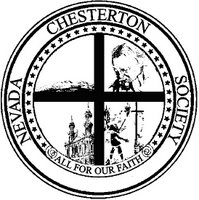Ch 5 OoO
1 The modern world has broken it self in two, optimists and pessimists.
2 The common explanation for these two thoughts are nonsense.
3 My explanation is "the optimist thought everything good except the pessimist,and that the pessimist thought everything bad, except himself"
4 But this is a deep mistake in this alternative. Man is not shopping for a house, he has a loyalty to this world long before he has any admiration.
5 And this loyalty is in fact the cause of progress and discovery in civilization, great cities are not loved because they are great, they grew great because they were loved.
6 "Granted that this primary devotion... is a source of creative energy" we can see clearly the deficiencies in the other modern strains of thought.
7 The problem with the sincere pessimist is "not that he chastises gods and men, but that he does not love what he chastises--he has not this primary and supernatural loyalty to things."
8 The problem with the optimist is that he does not love the world but an idea or a feature of the world. He will not reform things, but will go against all reason to prove a notion of things that pleases him.
--There are two sins against hope, presumption and despair--
9 It is rational optimism, loving something for a reason that leads to stagnation) it is irrational optimism or true patriotism, loving something for being yours that leads to reform.
10 True patriotism, love is not blind, "love is bound and the more it is bound the less it is blind."
11 The rational mood of our time is to accept the world as a mix of good and evil "and I think [this mood] freezes our epoch."
12 "For our Titanic purposes of faith and revolution, what we need is not the cold acceptance of the world as a compromise, but some way in which we can heartily hate and heartily love it."
13 A man must hate the world enough to want to change the world but love it enough to think it worth changing.
14 "Then I remembered that...Christianity was accused, at one and the same time, of being too optimistic about the universe and of being too pessimistic about the world.
15 "The more I thought about when and how Christianity had come into the world, the more I felt that it had actually come to answer this question" of how me may hate and love the world.
16 When Christianity came on the scene stoic idealism had shown the weakness of pessimism and Pantheism had shown the weakness of optimism.
17 The Stoics had given up on any god in the universe and only looked to the god with in.
18 The Pantheists declaring everything good fell in to an orgy of everything that was bad.
19 "The only people who really enjoyed this world were busy breaking it up; and the virtuous people did not care enough about them to knock them down."
20 In this dilemma (the same as ours) Christianity suddenly stepped in and offered a singular answer, which the world eventually accepted as THE answer.
21 According to Christianity the Origin and aim of everything was supremely good, but the drift of everything supremely evil.
22 And Christianity passed the dilemma. " this way at least one could be both happy and indignant without degrading one's self to be either a pessimist or an optimist. On this system one could fight all the forces of existence without deserting the flag of existence."
23 Having found The Christian Tradition to fit this whole in the world in this one large aspect i found other parts fitting or justifying all and more of the fancies and feeling mentioned in Ch 4.
24 Christianity entirely reversed the reason for optimism...But all the optimism of the age had been false and disheartening for this reason, that it had always been trying to prove that we fit in to the world. The Christian optimism is based on the fact that we do NOT fit in to the world.

0 Comments:
Post a Comment
<< Home